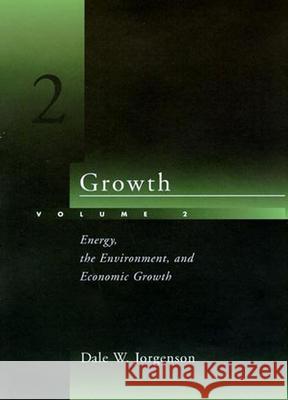Growth, Volume 2: Energy, the Environment, and Economic Growth » książka
Growth, Volume 2: Energy, the Environment, and Economic Growth
ISBN-13: 9780262519236 / Angielski / Miękka / 1998 / 504 str.
Volume 1: Econometric General Equilibrium Modeling presents an econometric approach to general equilibrium modeling of the impact of economic policies. Earlier approaches were based on the "calibration" of general equilibrium models to a single data point. The obvious disadvantage of calibration is that it requires highly restrictive assumptions about technology and preferences, such as fixed input-output coefficients. These assumptions are contradicted by the massive evidence of energy conservation in response to higher world energy prices, beginning in 1973. The econometric approach to general equilibrium modeling successfully freed economic policy analysis from the straitjacket imposed by calibration.As a consequence of changes in energy prices and new environmental policies, a wealth of historical experience has accumulated over the past two decades. Interpreted within the framework of the neoclassical theory of economic growth, this experience provides essential guidelines for future policy formation. Volume 2: Energy, the Environment, and Economic Growth presents a new econometric general equilibrium model of the United States that captures the dynamic mechanisms underlying growth trends and responses to energy and environmental policies. Jorgenson uses the model to analyze the impacts of environmental regulations on US economic growth and tax policies for controlling US emissions of carbon dioxide.











